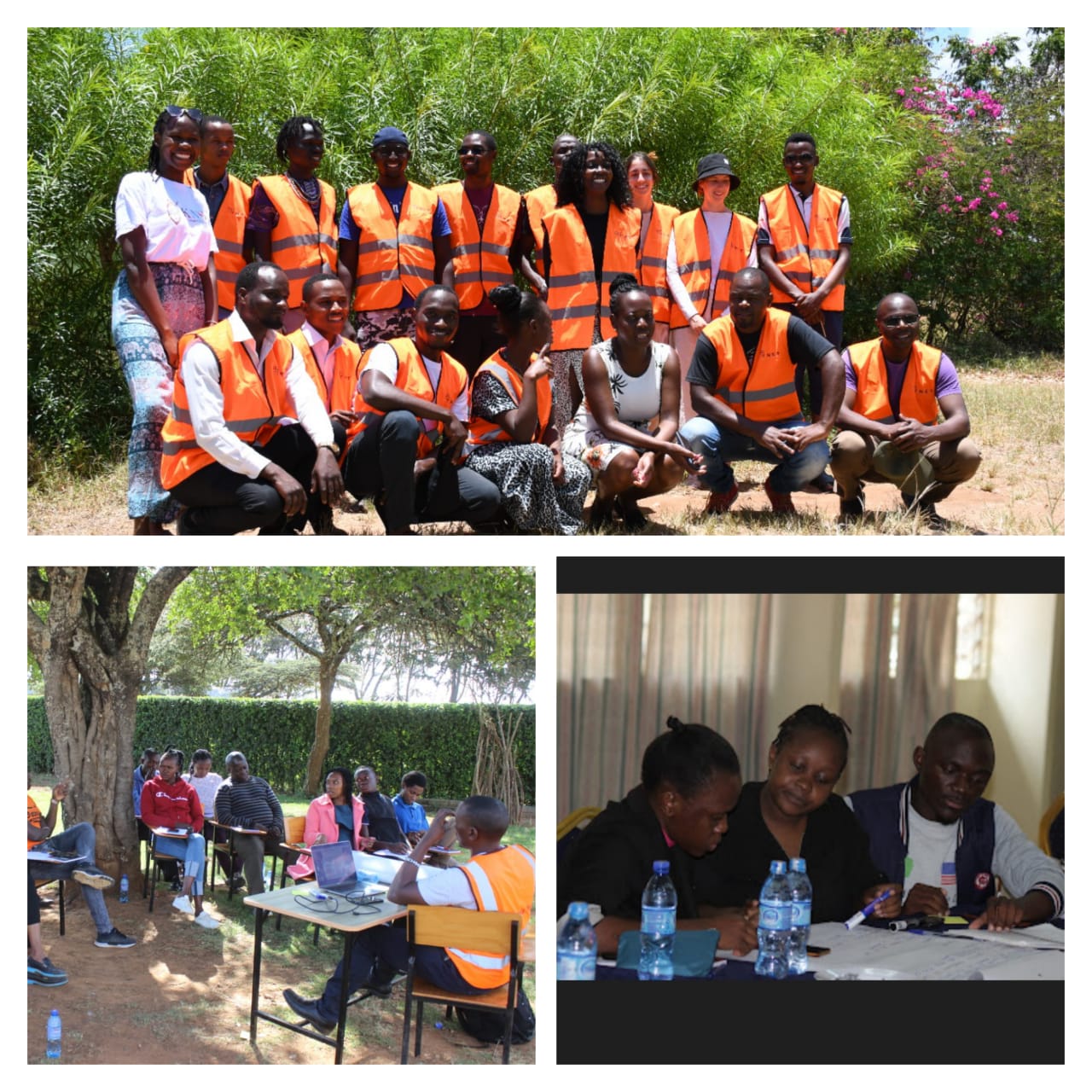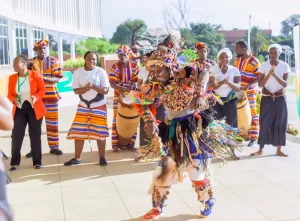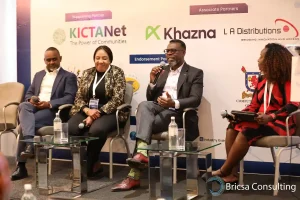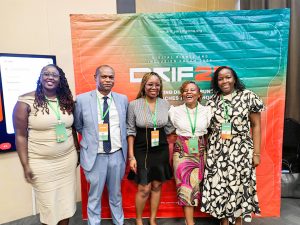TunapandaNet, a community network located in the informal settlement of Kibera, Nairobi, has been at the forefront of the community networks movement in Kenya, advocating for affordable connectivity through community deployment of infrastructure towards bridging the digital divide.
According to Habitat for Humanity, Kibera is the largest urban slum in Africa, with a population of about 700,000, followed by Khayelitsha in Cape Town, South Africa, with a population of about 400,000.
TunapandaNet has focused efforts on connecting Kibera schools and providing affordable internet to the community through hotspots.
Capacity building has been at the centre of the national exchange initiative aimed at nurturing community champions, strengthening the capacities of community networks, and growing internal expertise toward organizational autonomy.
As a follow-up to the national school training and facilitated by the national exchange funds from the Association of Progressive Communications (APC), TunapandaNet deployed capacity-building workshops centred around Communities of Practice (CoP) which are Sustainability, Network and Infrastructure, and Local content creation.
A community of practice is a group of people who share a concern or a passion for something they do and learn how to do it better as they regularly interact to promote the spread of best practices.
Currently, APC has 3 active CoPs; Bamboo (focusing on research in the use of bamboo masts), Solar Technology (focusing on the use of solar energy in the deployment of network infrastructure) and Sustainability (focusing on sustainability models for community networks).
Following the initial Community Networks Travel Fund (CNTF), the national exchange initiative aims to facilitate further national travel and allow 5 community networks from 5 countries – TunapandaNet (Kenya), CITAD (Nigeria), Zenzeleni (South Africa), PSA (Brazil) and Common Room (Indonesia) to further collaborate within their region and help build on the learnings of the National School.
The workshops by TunapandaNet have all been preceded by virtual mentorships with experts from various fields.
Participating Community Networks
The project brought together 9 community networks, 7 from the first iteration of the school and 4 more coming on board to enrich the movement:
- Dunia Moja (Kilifi)
- AHERINET (Kisumu)
- Ng’arua Maarifa Center (Laikipia)
- Athi community network (Meru)
- Oasis Mathare (Nairobi)
- Action Pour Le Progrès (Kakuma)
- Ngikeyokok Community Network (Lodwar)
- Kijiji Yeetu Community Network (Nairobi)
- Siaya Community Library (Siaya)
- Global Innovation Valley (GIV, Turkana)
Sustainability CoP
Sustainability is a prerequisite to any project’s longevity and viability, with community networks no exception. It facilitates continuity.
The sustainability workshop took place from 25th to 30th September 2022 in Laikipia, hosted by Ngarua Maarifa centre. The workshop sessions focused on:
- Social sustainability which aimed to define community networks and their structure, the needs for a community network, community and resource mobilization, the role of community champions, social media platforms for engagement with stakeholders, challenges and solutions to overcoming deployment of community networks, human capacity recruitment and deployment, and organizational programming through Strength, Weaknesses, Opportunities, and Threats (SWOT) analysis.
- Economic sustainability aims to create capacity around social entrepreneurship, social business model canvas, developing a marketing plan and skills, proposal development to support operations, and stakeholder mapping.
- Environmental sustainability focuses on environmentally friendly technology like the use of solar in powering infrastructure.
Network and Infrastructure CoP
Network infrastructure is the backbone of community networks, without which the question of bridging the digital divide would be too far-fetched. It is pivotal for community networks to build capacity and maintain expertise around infrastructure deployment.
This CoP workshop was hosted by Dunia Moja in Kilifi from 2nd to 7th October 2022 and took participants through theoretical but mostly practical sessions on:
- Designing and deploying computer networks.
- Building wireless community networks.
- Network operations; understand spectrum technologies, network topologies, DNS,
- Management, billing, and monitoring of community networks.
Local Content Creation CoP
Local content is an expression and communication of a community’s locally generated, owned, and adapted knowledge that is relevant to the community’s situation.
It is important to ensure content comes from the community, is strategic, and is tailored to a specific audience. Curation and hosting of Local content come in to bring relevance. The proximity to the target audience helps them understand their context towards designing applications and relevant value-added services.
The local content creation workshop took place from 16th to 21st October 2022 at the Africa Advanced Level Telecommunications Institute (AFRALTI) Nairobi. The session focused on:
- Relevance of local content to community networks.
- Videography and videography basics and practical sessions on creating video content.
- Podcast setting and creation.
- Creating blogs. It is important to map out your target audience and target the content in alignment with their context.
- Creating social media pages for organizations to create visibility.
The participants were grouped and wrote a blog of choice, choosing from various topics and then later presenting it to the entire team.
- Host discussions with guests and experts
- Publish and distribute your creations
- Record and edit interviews or audio
- Coordinate and share work
- Co-create and exchange content
Tunapandanet continues to pave the way in narrowing the digital divide and replicating it to other community networks through knowledge transfer.
KICTANet continues to champion and support the creation of an enabling environment in Kenya for community networks to emerge and thrive.
This is a series of our publications on Community Networks.
Ms. Catherine Kyalo is the KICTANet Africa Regional Coordinator for Community Networks under the APC-LOCNET initiative. She is passionate about community welfare and enjoys yoga to rejuvenate. LinkedIn | Twitter
![]()




